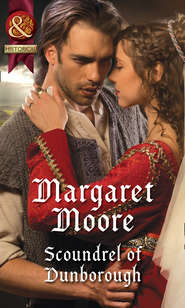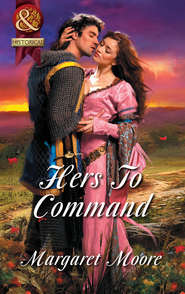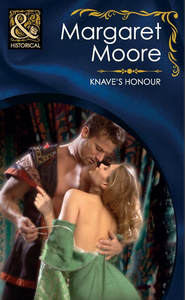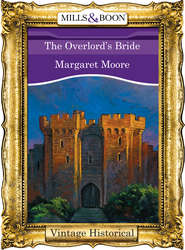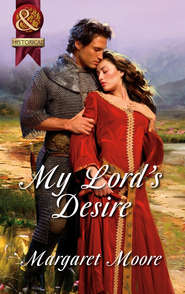По всем вопросам обращайтесь на: info@litportal.ru
(©) 2003-2024.
✖
Hers to Desire
Настройки чтения
Размер шрифта
Высота строк
Поля
PROLOGUE
The Midlands, 1228
IT WAS A MISTAKE to show fear.
If the boy had learned anything from the harsh, mocking tongue of his father and the fists of his older brothers, it was that. It was also a mistake to show joy. Or pity. Or indeed, any emotion at all. His home, if it could be called such, had been a cold brutal place after his mother had died.
So when Ranulf was forced to leave it, the twelve-year-old didn’t mourn as most boys would. He didn’t shed a single tear as his father chased him away with a whip, cursing and swearing and calling him terrible names. Nor did he run to avoid the blows. He ran because he was free. Free of the father who’d never cared for him. Free of his older brothers who beat and teased and tormented him. Free to go where he would, and do what he liked.
He knew exactly what that would be. No matter how difficult or long the journey, he was going to the castle of Sir Leonard de Brissy. He was going to learn to fight and eventually become a knight.
It was indeed a long and difficult journey—more so than he’d imagined—yet when Ranulf finally reached the gates of Sir Leonard’s castle, he walked with his head high, his shoulders back, as if he feared nothing, his determined pride as fierce as his desire.
“Take me to Sir Leonard de Brissy,” he ordered the startled soldiers standing in front of the massive wooden portcullis.
“Who are you and what do you want with Sir Leonard?” the older of the two men asked, his heavy dark brows furrowing as he studied the boy with the mop of matted red hair and torn, dirty clothing. The lad looked like a penniless urchin, but he carried himself as if he were a prince of the blood and spoke like one of the many noblemen’s sons who came to be fostered and trained by Sir Leonard de Brissy in chivalry and the arts of war.
“I am Ranulf, son of Lord Faulk de Beauvieux. I have come to train with Sir Leonard,” the boy declared, his slender hands balled into fists at his sides. Beneath the dirt, his sharp-featured face was pale and there were dark circles of fatigue under his hazel eyes.
“Well, Ranulf of Beauvieux,” the older guard said, “it’s not so simple as that. Sir Leonard chooses the boys he trains. Nobody—least of all a stripling lad—just arrives and demands to stay.”
“I am the exception.”
The younger soldier whistled under his breath. “Ain’t you the cocky one?”
The lad raised one tawny brow. “I told you, I am Ranulf, son of Lord Faulk de Beauvieux, and I must see Sir Leonard. I have walked…I have come a long way to do so.”
After the boy faltered, he fought all the harder to maintain his mask of haughty self-confidence, even though he began to despair that he might have come so far—walking alone in the dark of the night, stealing to eat and sleeping anywhere he could—for nothing.
“Walked here, eh?” the younger guard asked, his expression relaxing into a grudging respect. “Come from a long ways off, have you?”
“I will explain to Sir Leonard, not to you,” Ranulf replied.
“What will you explain to me?” a deep, gruff voice demanded.
The guards immediately straightened, stiff as planks. They continued to face the road leading into the castle and didn’t turn around to look at the man who’d spoken. Ranulf, however, could easily see the tall, gray-haired man dressed in chain mail and a black surcoat striding toward them with the easy gait of a man half his age. His long, narrow face was brown as oak from days in the saddle and marked with several small scars. Yet it was not the sun-browned skin that drew Ranulf’s attention, or the scars, or the shoulder-length iron-gray hair. It was the man’s piercing ice-blue eyes, eyes that sought the truth.
This man had to be Sir Leonard de Brissy and Ranulf knew, with absolute certainty, that if he lied or exaggerated, he would be turned away. He would never learn how to fight and use weapons with skill. He would never be a knight.
When Sir Leonard came to halt, Ranulf met that stern gaze as he bowed. “Sir Leonard, I am Ranulf, son of Lord Faulk de Beauvieux. I wish to join your household and learn to be a knight.”
“I have heard of Faulk de Beauvieux,” Sir Leonard coolly replied as he studied the son of a man known to be viciously cruel, who drank hard and fought harder. He saw Faulk’s foxlike features repeated in his offspring. The lad had also inherited his father’s slim, wiry build, broad shoulders and straight back, as well as the proud bearing of his arrogant sire.
Yet the sight of that red hair and those green-brown eyes tugged at Sir Leonard’s stern heart. They were not from Faulk; they came from the lad’s mother, a woman Sir Leonard had not seen for twenty years. Yet the eyes Sir Leonard remembered had been soft and gentle; the ones gazing back at him now had a strength and determination his mother had never possessed, or she might have been able to avoid the marriage her parents arranged for her.
And there was still more. That the boy was anxious was obvious to Sir Leonard’s seasoned eye, for he’d been training noblemen’s sons for thirty years and had seen more than his share of youthful bluster. Still, this boy stood with a self-controlled fortitude Sir Leonard had rarely seen, except in the most well-trained, seasoned knights.
This was no ordinary lad. One day, he could either be a valued ally, or an implacable enemy.
He would prefer the ally.
So Sir Leonard gave the boy one of his very rare smiles and said, “I knew your mother when she was a girl. For her sake, you are welcome here, Ranulf de Beauvieux.”
Although relief flooded through Ranulf like a river breaking its banks, he hastened to set Sir Leonard straight on one important thing. “I am not of Beauvieux, and I never will be. My father has cast me out, and I want nothing more to do with him, or my brothers.”
“Why did your father do that?”
Ranulf had known this question would be asked and, as before, he could not lie. “That I will tell you in private,” he said, sliding a glance at the sentries still standing stiffly nearby. “My family’s business is not fodder for gossip.”
Instead of taking offense or—worse—laughing, Sir Leonard gravely nodded. “Then come, Ranulf. I believe we have much to talk about.”
CHAPTER ONE
Cornwall, 1244
THE LORD OF TREGELLAS fidgeted on his carved oaken chair on the dais of his great hall. “God’s wounds, does it always take so long?” he muttered under his breath.
Normally Lord Merrick was the most stoic of men, and the hall of Tregellas a place of ease and comfort. Today, however, his lordship’s beloved wife was struggling to bring forth their first child in the lord’s bedchamber above, so everyone was anxious. The servants moved with silent caution, and even the hounds lay still and quiet in the rushes that covered the floor.
Only Lord Merrick’s bearded, red-haired friend seemed at ease as he sat on that same dais and took a sip of wine. “I’ve heard that two or even three days are not uncommon for a first birthing,” Sir Ranulf remarked.
Merrick’s eyes narrowed. “Is that supposed to comfort me?”
Ranulf’s full lips curved up in a slightly sardonic smile. “Actually, yes.”
As Merrick sniffed with derision, Ranulf set down his goblet. “It seems an age to us, and no doubt longer to your Constance, but I gather a lengthy labor is not unusual the first time, nor does it indicate any special danger for the mother or child.”
“I didn’t know you were an expert.”
“I’m not,” Ranulf said, refusing to let his friend’s brusque manner disturb him. Merrick had never been known for his charm. “I truly don’t think there’s any cause for worry. If your wife or the babe were at risk, the midwife would have summoned both you and the priest, and Lady Beatrice would have been sent from the chamber.”
In fact, and although he didn’t say so, Ranulf thought it rather odd that Beatrice was still in Constance’s bedchamber, regardless of what was transpiring. He didn’t think Beatrice should be witnessing the travails of childbirth, or inflicting her rather too bubbly presence on a woman at such a time. If he were in pain, the last thing he’d want would be lively Lady Bea buzzing about, telling him the latest gossip or regaling him with yet another tale of King Arthur and his knights.
“Constance wanted her,” Merrick said with a shrug. “They are more like sisters than cousins, you know.”
Ranulf was well aware of the close bond between his best friend’s wife and her cousin. That was why Beatrice had a home here in Tregellas although she had nothing to her name but her title, and that was due to Merrick’s influence with the earl of Cornwall. Otherwise, Beatrice would have lost that, too, when her father was executed for treason.
Merrick started to rise. “I cannot abide this waiting. I’m going to—”
The door to the hall banged open, aided by a gust of wind. Both men turned to see a vaguely familiar man on the threshold, his cloak damp with rain, his chest heaving as he panted.
“My lord!” the round-faced young man called out as he rushed toward the dais.
“It’s Myghal, the undersheriff of Penterwell,” Merrick said.
That was one of the smaller estates that made up Merrick’s demesne on the southern coast, and as they hurried to meet the man halfway, Ranulf was unfortunately certain this fellow’s breathless advent could herald nothing good.
“My lord!” Myghal repeated as he bowed, his Cornish accent apparent in his address. “I regret I bring bad tidings from Penterwell, my lord.” He bluntly delivered the rest of his news. “Sir Frioc is dead.”






